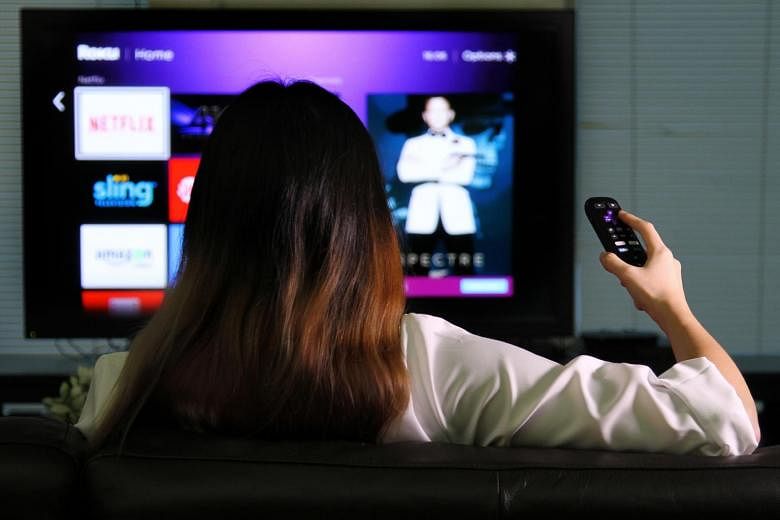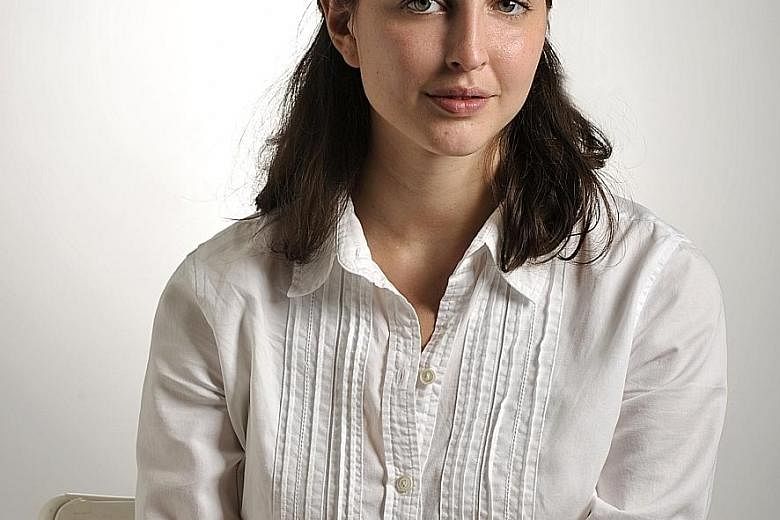Generally, I dislike reality TV. I find the shows are often boring - why there are so many seasons of cooking competitions such as MasterChef and The Great British Bake Off, I will never understand - or thrive on encouraging the basest aspects of humanity. Witness the cattiness and sexist tropes on The Bachelor, superficiality glorified on Keeping Up With The Kardashians, and the classism of shows like Geordie Shore.
So much of reality TV indulges in the height of materialism or the lowest-brow schadenfreude that I find it distasteful.
And yet, I have found my reality Achilles heel - I have become addicted to Terrace House, a Japanese show which places three young men and three young women together in a beautiful house with two beautiful cars and watches them go about their day, unscripted. Part Big Brother, part matchmaker, it is unlike anything I have watched before.
Like Big Brother, cameras are placed in strategic locations around the house and through them, we see the housemates eat meals, lounge on the couch and have long talks in their rooms.
Sometimes, the housemates go on dates with each other. Dating, in fact, is the show's main event. Most of the cast join the show single. In their pre-appearance interview, finding love is the most common reason they give for wanting to move into the house. When they are introduced to their new housemates, determining their relationship status and their dating type is the first order of business after learning each other's names.
Though the show isn't scripted, and the producers have no control over what the housemates say or do, it is heavily edited so the narrative of the show is, at least in part, structured by its producers.
And is the cast chosen with matchmaking in mind? Are the cast members forbidden to date outside of the house? None of this is explicitly stated, as far as I know, but the implication floats in the air.
I was late to the game when I watched my first episode of Terrace House on Netflix a few months ago. It started on Fuji Television, where it was broadcast in Japan from 2012 to 2014. In 2015, it was picked up by TV-streaming site Netflix and premiered there on Sept 2, 2015. By the time I watched the first episode of Terrace House: Boys & Girls In The City, set in Tokyo, all of its 46 episodes, and 24 episodes of the series' second season, Terrace House: Aloha State, set in Hawaii, had aired.
I was hooked from the first, even though, I had to admit, nothing was really happening. I watched the cast wake up, go to work, go to the grocery store, make dinner, go to sleep and not much else. It was arguably one of the most boring reality TV shows I had ever seen, but I couldn't look away.
I found the respectful way they greet each other throughout the day charming, their ritual preparation and eating of every meal endearing, and the way they parrot each other's words or phrases ad nauseum incredibly annoying.
It was the definition of mundane, but I liked it. The producers appeared to eschew drama - raucous house parties are only alluded to and screaming arguments between housemates are discussed in the aftermath but not shown. It's a refreshing, dare I say dignified, change from most reality shows where alcohol-fuelled arguments are wilfully amplified in hopes of ratings.
By emphasising simple, daily life, the producers focus our attention on the nuanced interactions between cast members and how a turn of the head or a flick of an eye can reveal an impending fight or burgeoning love.
Suddenly, I had a front-row seat for Japanese culture.
Most of the time, the show perplexes me. The cast's fumbling attempts at courtship are often hard to watch. House members can be blunt to the point of meanness about certain topics - such as someone's hopes and goals for the future - yet expressionless in the face of heartbreaking romantic rejection. Cast members declare attraction for each other after their first meeting, but wait until they are officially dating to hold hands. I cannot understand it.
Fortunately, the show also features insights from a group of commentators - Japanese media personalities You, Reina Triendl, Yoshimi Tokui and Kentaro among them - who provide enlightening and often humorous interpretations of the cast members' actions throughout each episode.
With time, I have begun to feel like I am starting to understand a culture which has been largely alien to me before. And I am learning the language!
Thanks to the help of English subtitles, my knowledge of Japanese customs and vocabulary has increased exponentially. I suddenly find myself wanting to say "konbanwa" (good evening) in greeting, "itadakimasu" (thank you for this food) at the beginning of my meals and I have definitely picked up the habit of responding with a sharp "mm" in conversations when I want to acknowledge that I understand what a person is saying. I have started identifying with cast members, too. Like barista Mizuki, my goals are a little hazy. Like Natsumi, my pride sometimes makes it difficult for me to apologise. Like Taishi, I'm guilty of holding people to standards that I don't always meet myself. Like Niki, I am happy whenever I am by the sea.
As someone who rarely thinks before she speaks, I find myself admiring the conscientious way cast members carefully consider the tone and connotation of their words. After watching Terrace House, I have resolved to be more conscious of my language, too.
More than anything, I admire the cast members' dedication. They often have a goal for their time in Terrace House. Sometimes the goal is to find love, or to open an exhibition, or perform in a show, and they pursue these interests doggedly. Cast members inspire each other to work hard - "ganbatte kudasai" a nuanced phrase which means "please do your best" or "I know you can do it" is a frequently used expression - and those who don't risk a harsh reprimand from their housemates. Housemates are not usually in competition with one another, so they lift each other up instead of tearing each other down.
When have you ever seen this on an American reality show, where everything is a competition of some kind?
I've watched over 60 episodes of Terrace House now and I still can't get enough. I love learning about a culture so different from my own, and I love how oddly, unexpectedly, a show about six young Japanese living together has become a vehicle of reflection for my own life.
I've binged on all the Terrace House episodes and now have nothing left to watch, which is probably a good thing. While I eagerly await the next episodes of Terrace House: Aloha State - tentatively scheduled to air on Sept 24 - I have time to think about what my goals would be if I moved into Terrace House. I know what the cast would say - ganbatte!
• #opinionoftheday is a column for younger writers in the newsroom to write about issues that matter to them and their peers.



